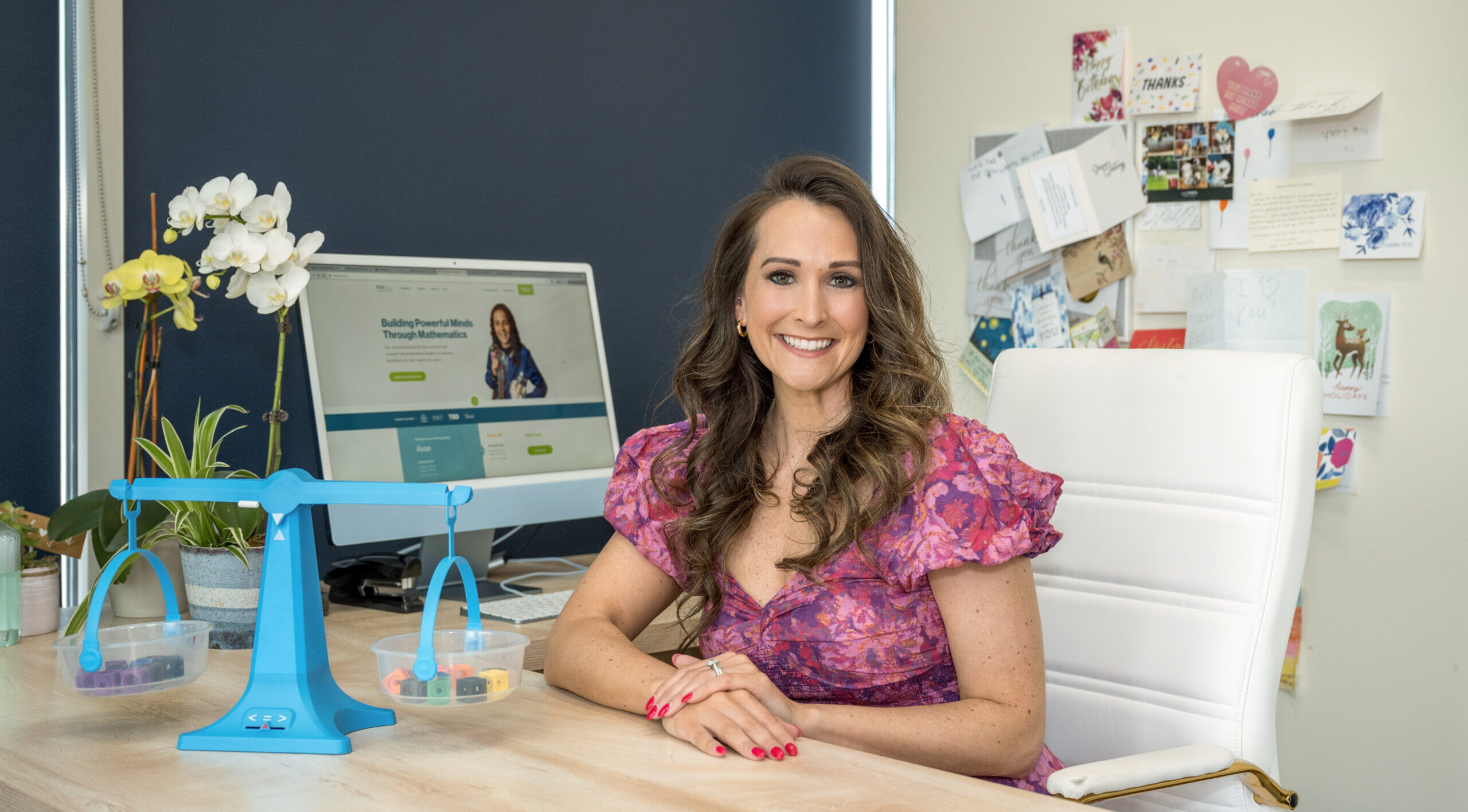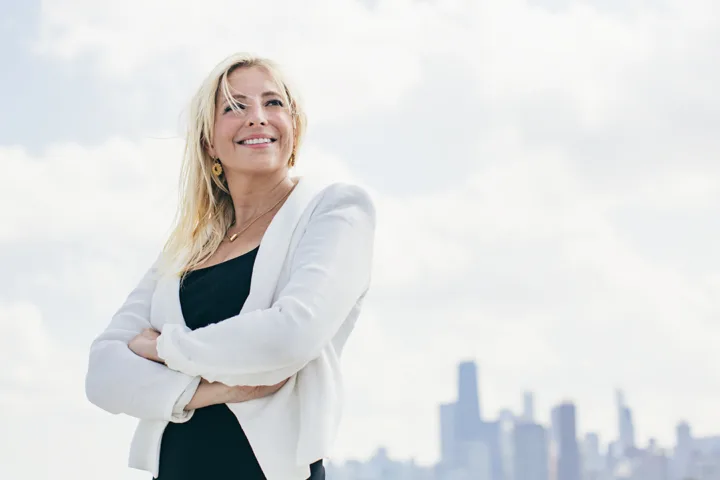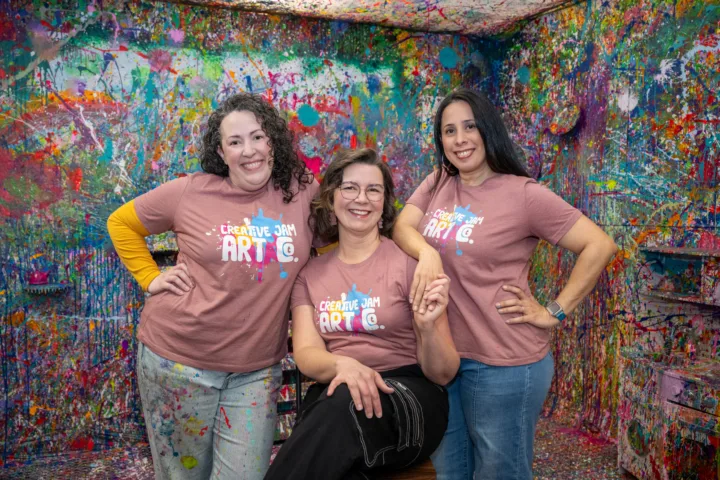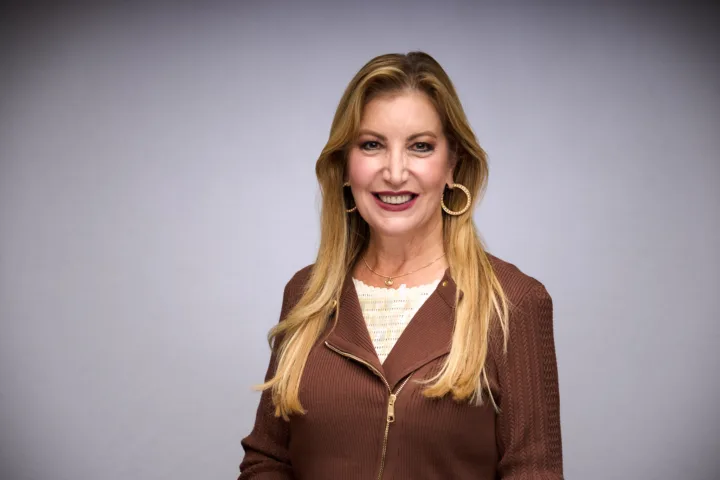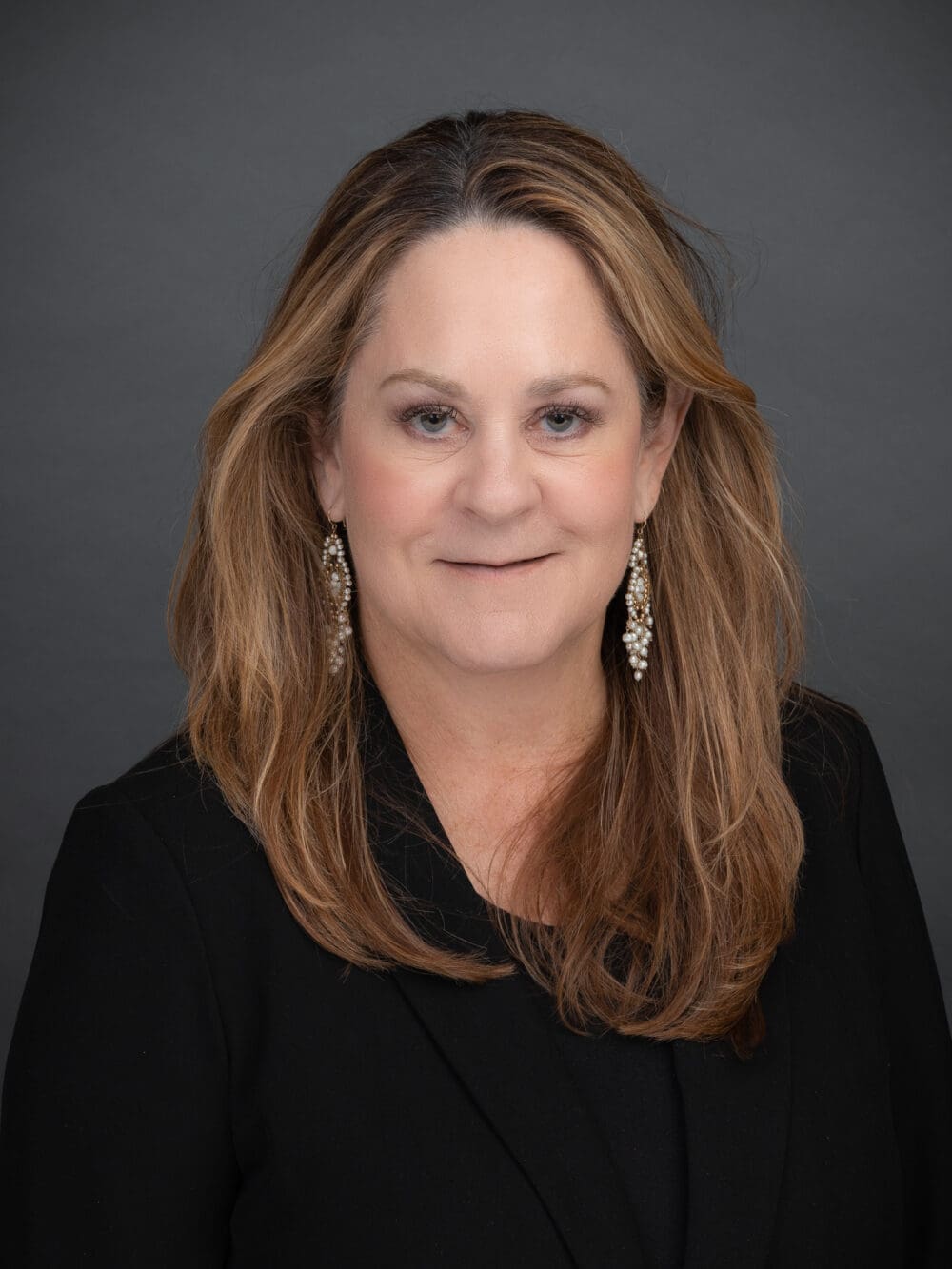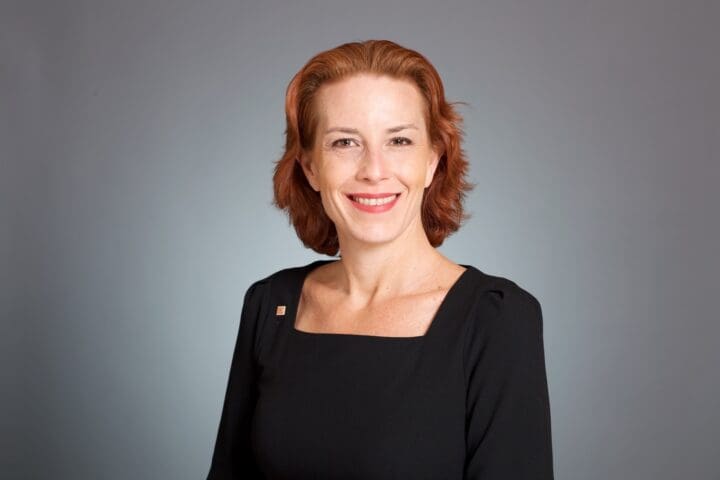Having been raised by a strong, independent woman, I have never felt intimidated by being the only woman in a room full of male leaders. Confidence is essential, and I am fortunate to carry that confidence into my role at RSM.
Leah Gallo
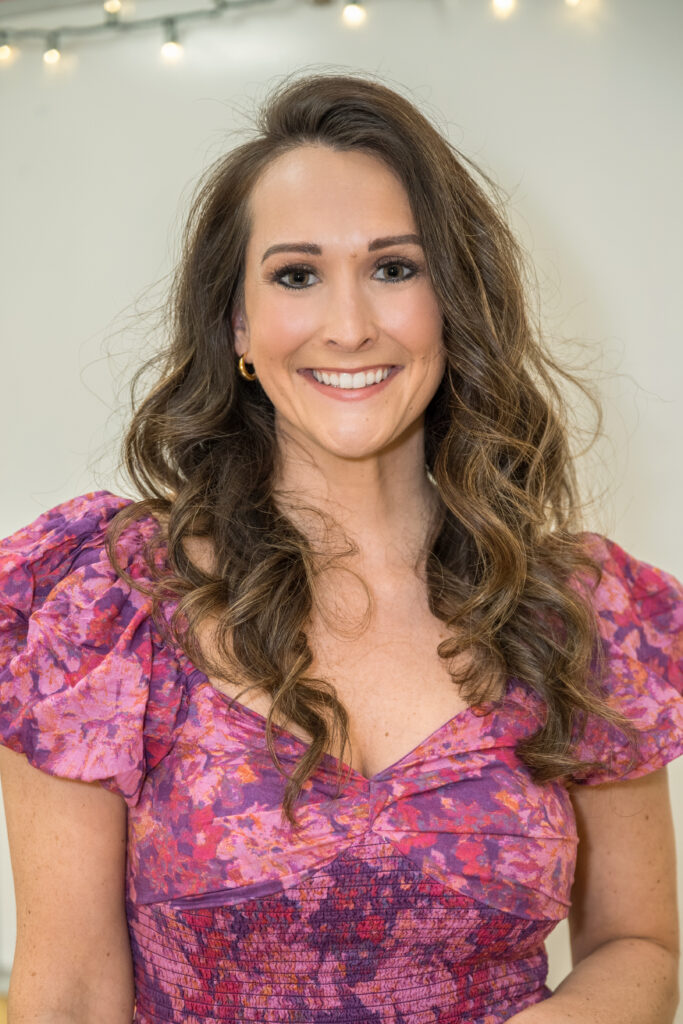
Leah Gallo is shaking things up in the world of math education, and it is exciting. This go-getter has come a long way from being a math-loving student to running the show as a regional director at the Russian School of Mathematics. Let’s talk about climbing the ladder.
Leah’s story kicks off with a degree in math, but it was her time with Teach for America that really opened her eyes. She saw firsthand how unfair math education could be, which lit a fire in her. While teaching middle school kids in the Big Apple, she hustled to get her master’s degree. Now, that’s what we call multitasking.
Her career has been a wild ride, with stops at a cool ed-tech company and teaching high school math in Philly. But it was in Connecticut where Leah hit her stride. She took on big roles like Dean of Math and Science and Director of Operations before finding her perfect fit at Russian Math School (RSM).
✿ Thank you for reading!
Subscribe to be our bestie, no spam—just good vibes once a month.
At RSM, Leah’s leadership style is all about setting the bar high and trusting her team to reach it. She’s got a knack for hiring folks who love math just as much as she does and aren’t afraid to crack a joke or two. Her secret sauce? Knowing when to step back and let her awesome team shine. Additionally, from my observations, she is practical, super organized, has perfect discipline and ethics, and has a warm personality. When you read her answers, you will understand what I mean here. You would want to have notes; she will inspire you to be more organized.
Being a woman in charge isn’t always a walk in the park, but Leah’s confidence game is strong. And at RSM, she’s found a place where girl power is the name of the game. Leah’s on a mission to get more women into STEM fields. She’s all about showing girls that math isn’t some boring, scary monster – it’s actually pretty cool and creative! She wants to inspire the next batch of math wizards, especially the girls. We need more Leah’s in this crazy world because STEM is the key to a better world in many different aspects.
If you think Leah’s all work and no play, think again! She’s a pro at juggling her busy work life with her personal time. Her trusty color-coded calendar and super supportive husband help keep her on track.
When it comes to teaching math, Leah’s all about getting kids to really think, not just spit out answers.
Looking ahead, Leah’s dreaming big. She wants to open up another RSM school and spread the math love even further. Her goal? To be that teacher kids remember fondly years down the road, just like her high school math teacher was for her.
Do you dream of being a STEM superstar? Leah Gallo has some wisdom for you: Know your worth, don’t be afraid to try different things, and keep pushing forward with your head high. With role models like Leah leading the charge, the future of math education is looking bright and full of girl power.
I am proud to introduce Leah Gallo to you.
Enjoy reading.
Team: Interview: Pinar Ozyigit Photos: Debra Chute
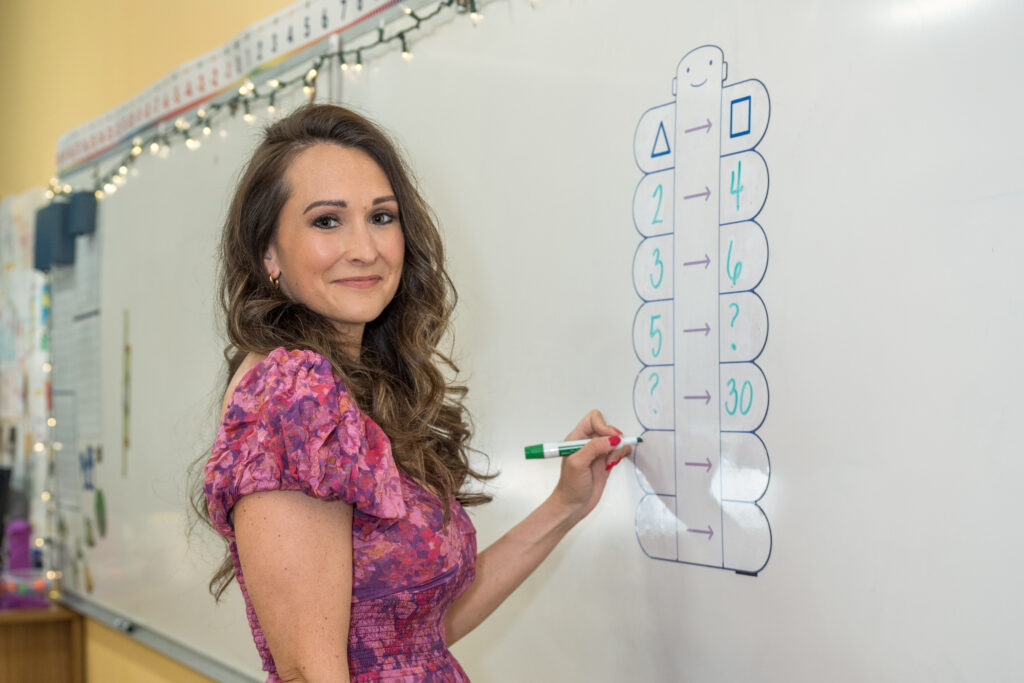
We urgently need more women in STEM. Many girls in the US have a negative math experience, and I am passionate about changing that narrative. Mathematics is engaging, straightforward, and logical—much like solving a puzzle.
Leah Gallo
Leah, can you share your journey from obtaining a master’s degree in mathematics to becoming the regional director of the Russian Math School in Connecticut?
After earning my bachelor’s degree in mathematics, I embarked on a career in education, beginning with Teach for America. This experience exposed me to the inequities in mathematics education, the philosophies of public schooling in the US, and the diverse educational experiences of students across the country. While teaching middle school mathematics in New York City, I pursued a master’s degree in secondary mathematics. This phase of my career was both rewarding and challenging, equipping me with the skills to become an excellent educator.
I continued to advance my career by joining LearnZillion, an ed-tech company focused on developing curriculum aligned with the Common Core standards. I balanced this role with teaching high school mathematics at a charter network in Philadelphia. Eventually, I transitioned to Connecticut to take on my first leadership role as Dean of Math and Science in Hartford, later becoming the school’s Director of Operations. Concurrently, I worked at the Russian School of Mathematics (RSM), where I embraced a logic-based approach to teaching algebra and a discussion-driven classroom methodology.
My passion for RSM’s innovative teaching methods led me to a full-time role as Principal of RSM Avon. Within a few months, I was promoted to oversee the North Connecticut region of schools as a Regional Director. In this role, I combine my expertise in math instruction and operations, fostering strategic thinking skills in students while managing regional growth. I am deeply committed to expanding our impact across Connecticut, aiming to provide students statewide with access to a logic-based math approach and instilling a love for the subject that mirrors my own.
How would you describe your leadership style, and how has it evolved over your career?
As a leader, I uphold exceptionally high expectations paired with an equal measure of trust. My hiring philosophy centers on selecting individuals who share my passion for mathematics, exude positivity, and maintain a sense of humor. By surrounding myself with such team members, we can engage in constructive conversations about continuous improvement with ease.
In my early days as a leader, I often took on too much myself. Over time, I learned that effective delegation and trust in my team are fundamental to successful leadership.
What have been some of your most significant challenges as a woman in a leadership position in the education sector?
My experiences reflect the challenges faced by many women across various careers, particularly in leadership roles traditionally dominated by men. At the Russian School of Mathematics (RSM), I found a unique environment where women are at the helm. Founded by two visionary women committed to math excellence, RSM stands out as an organization where female leadership thrives.
Having been raised by a strong, independent woman, I have never felt intimidated by being the only woman in a room full of male leaders. Confidence is essential, and I am fortunate to carry that confidence into my role at RSM.
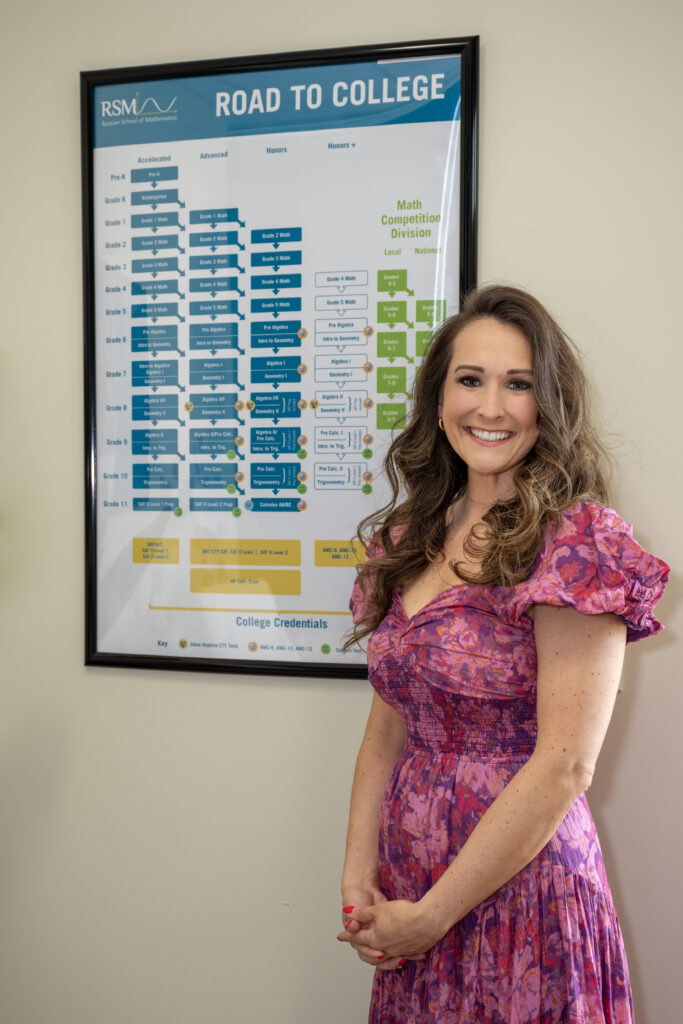
What are your thoughts on the current representation of women in STEM fields, and what can be done to improve it?
We urgently need more women in STEM. Many girls in the US have a negative math experience, and I am passionate about changing that narrative. Mathematics is engaging, straightforward, and logical—much like solving a puzzle. When young girls who initially express a dislike for math come to me, they often discover that the subject is far more creative and logical than they imagined. My goal is to positively influence as many future STEM professionals as possible, and it is especially rewarding to inspire so many young women.
With your reputation for being highly organized, please share some strategies or tools you use to manage your daily responsibilities effectively.
I am a digital enthusiast, and my calendar is my lifeline. Every event in my life—meetings, nail appointments, vacations—goes on the calendar. It’s crucial to synchronize family calendars for household functionality. In my case, I input all events and share calendar invites with my husband. This system integrates with our computers, phones, and even our refrigerator.
I organize tasks and meetings with color codes: day-to-day tasks are blue, meetings are purple, and personal events are green. At the end of each week, I review my calendar to assess where my time was spent and reflect on whether it aligns with my goals. For example, a personal goal this summer is to feel like I’m on vacation by dining outdoors as much as possible. Each week, I check if there’s an outdoor date on my calendar.
For those new to organization, start by listing all your regular, must-do events, either on paper or digitally, and set times for them. Next, list and schedule all your tasks. Then, consider what you want to do weekly, such as going to the gym or park, and set times for those activities. Finally, review the “white space” on your calendar to ensure you have enough downtime and family time, meal times, and reasonable timelines for work projects. This process helps you visualize how you’re actually spending your time and make necessary adjustments.
Have you had any mentors or role models who significantly influenced your career? How do you approach mentorship within your organization?
My high school math teacher, Mrs. Dunmyre, was absolutely incredible. She set the highest expectations in our school, achieved outstanding results on AP exams, and commanded a respectful awe from all her students. I often reflect on her as a shining example of a strong woman in mathematics. She balanced her professional and personal life with grace, always appearing genuinely happy to discuss topics like limits or derivatives. I aspire to leave a similar impression on my students one day.
In my professional life, I prioritize transparency with my team. For staff members enthusiastic about leadership opportunities, I arrange times for them to shadow and learn from me. When someone struggles with classroom management, I step in and teach alongside them as a model. I believe mentorship involves being attuned to your staff members’ goals and aspirations and supporting them in every way possible.
Mathematics education is fundamentally about cultivating a mathematical mindset. It is crucial for students to harness algebra as a tool for flexible and critical thinking, facilitated through collaboration with their peers and teachers.
Leah Gallo
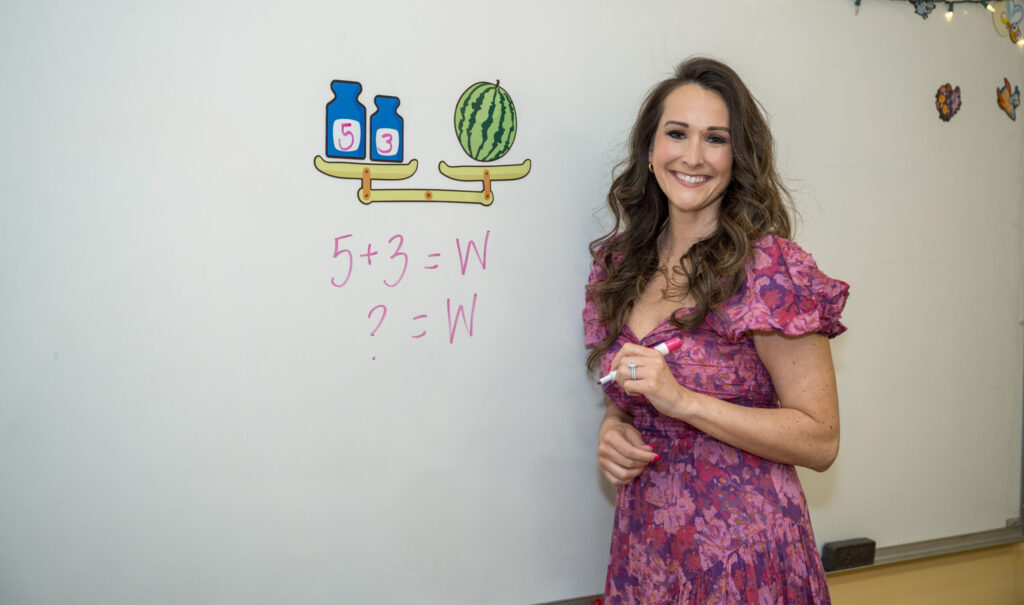
How do you balance your demanding professional life and personal interests or responsibilities?
My calendar! I clearly define my personal and professional goals, ensuring that everything is scheduled. My supportive husband and I even plan our dinners at 9:30 PM to accommodate my work commitments. This balance allows me to stay focused and achieve what I set out to accomplish.
What is your philosophy on education, and how does it shape your approach at the Russian Math School?
Mathematics education is fundamentally about cultivating a mathematical mindset. It is crucial for students to harness algebra as a tool for flexible and critical thinking, facilitated through collaboration with their peers and teachers. This collaborative approach nurtures intellectual character and perseverance in the study of mathematics. My primary goal is to teach your child how to THINK, rather than merely how to arrive at answers.
The education sector has seen many changes, especially with recent shifts to online learning. How have you adapted your strategies to meet these new challenges?
Our program embraces a traditional approach where students utilize textbooks, notebooks, and whiteboards for their learning. While we don’t use technology in the classroom for our in-person program, we do leverage it for practice and homework at home. This allows us to track students’ progress and make informed decisions about classroom discussions. Additionally, we offer RSM Online, which mirrors our in-person program. We’ve developed proprietary software called Virtual Classroom that replicates the in-person experience. Through this platform, students can interact with classmates, see the whiteboard and teacher, and cannot mute themselves or turn off their cameras. We are continuously enhancing this program to ensure our online offerings match the high standards of our in-person instruction. During COVID, I was particularly proud of how our program provided families with an engaging, interactive digital math experience.
What is one of the most unexpected challenges you’ve encountered as a regional director, and how did you address it?
Finding qualified teachers has proven to be more challenging than anticipated. Our educators are not only math experts but also committed to training in and adhering to the Russian Math methodology. This level of training and expertise requires time and dedication, and it is crucial to me that our schools uphold the high standards our founders envisioned. One of my professional goals for the coming year is to train and develop our new staff. As our schools expand, we will continue to seek out this exceptional talent. To address this challenge, I prioritize comprehensive training, providing ongoing observation and feedback to ensure our teachers consistently align with Russian Methods and uphold our standard of excellence.
How do you measure success in your role, both personally and for your team?
As Regional Director, I dedicate significant time to measuring success through data. I continually evaluate student performance, ensuring they are not only excelling academically but also enjoying mathematics. Additionally, I gauge teacher satisfaction to maintain a positive and productive work environment. Living in the community, I serve offers a unique and gratifying perspective; seeing the smiling faces of students at local grocery stores or coffee shops provides a heartfelt measure of success and immense personal satisfaction.
What goals will you achieve in the next few years for yourself and the Russian Math School in Connecticut?
I am enthusiastic about the prospect of expanding and opening another school in Connecticut in the coming years. With students currently commuting from various communities, this expansion will enable us to extend our positive impact on mathematics education to a broader range of students.
What advice would you give to women aspiring to leadership roles in education or STEM fields?
It is crucial for women in STEM to recognize and never underestimate their value. Finding the right fit within the industry may require exploring multiple career opportunities, and that journey is perfectly acceptable and often necessary for long-term success and fulfillment.
Lastly, Leah, can you share some recommendations for parents on supporting their children in STEM, especially in Math; please give us 5 DO’s and 5 DON’Ts.
DO’s
- Allow for independence and struggle.
- Talk about math in a positive way.
- Solve puzzles and mysteries as thinking activities.
- Stay informed on their progress.
- Work with their teachers as a team.
DON’Ts
- Don’t do their homework for them.
- Let them quit when it gets hard.
- Tell them, “I’m not a math person either.”
- Judge them based on their test scores.
- Push them if they aren’t ready.
The Lasts of Leah Gallo
Last book:
The Silent Patient (any psychological thriller!)
Last TV Show or Movie:
Binging Season 3 of The Bear
Last Travel:
Home, to Pittsburgh to visit with family.
Favorite Food: Tortellini Carbonara
Favorite Dessert: Affogato
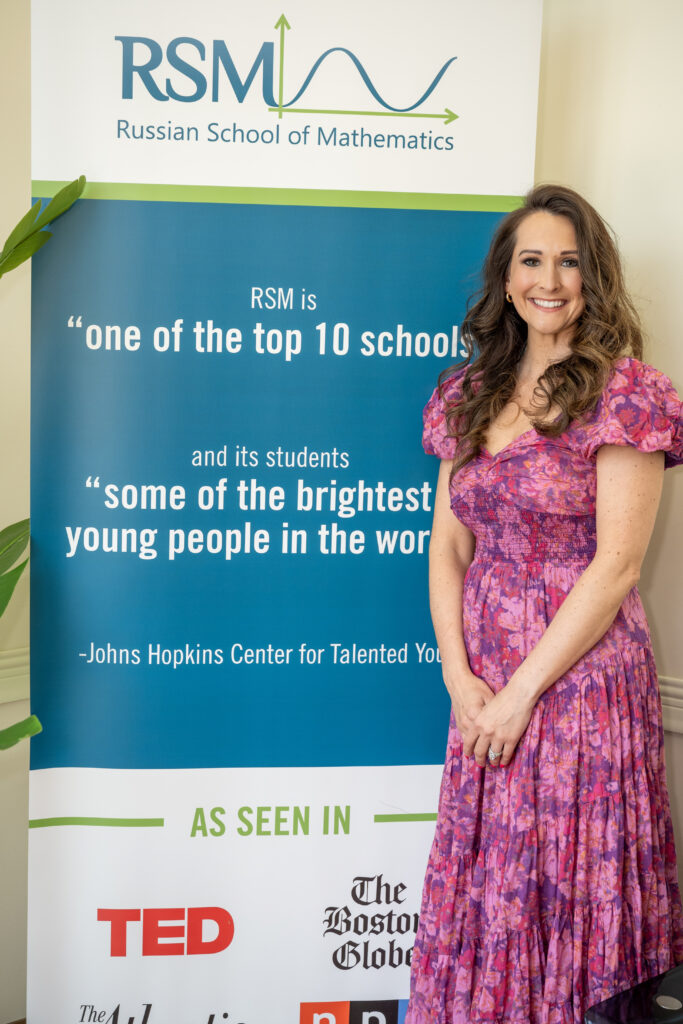
Shortcuts to Questions
Disclaimer: The views and opinions expressed in this interview belong solely to the interviewee and do not reflect the official views of She.Work or its team. This interview is shared in a Q&A format to highlight the personal story and lived experience of the individual. It is not a research article or a verified report. At She.Work, we provide a space for women to speak in their own voice, and we honor those voices as part of our mission to amplify women’s journeys. We do not fact-check personal opinions or individual claims unless the interviewee provides specific names or details that require verification. Our goal is to respect each woman’s truth as she shares it.
✱ If you liked this article, please share it with a friend who could use inspiration.
If you have a topic in mind or a story to share anonymously or with your name, email us at team@she.work

